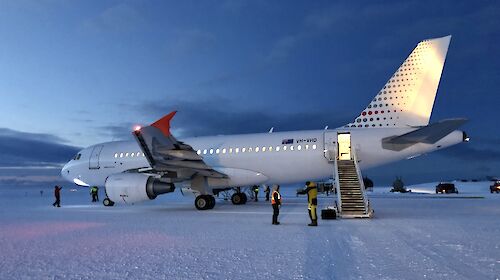Then if they get through that, a group of about 18 is sent to a camp on the outskirts of Hobart where they stay for almost four days, constantly monitored by psychologists and other experts to see how they cope with changing circumstances, fatigue, small group dynamics and isolation.
On day four, one group is told they’ve made it and head back to base for a final interview. The others are put on a bus to the airport.
Recruitment for a reality TV show? It’s actually the selection process for station leaders at Australia’s Antarctic stations.










